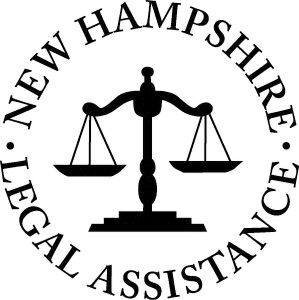Housing Discrimination Against Survivors of Domestic Violence
Having a safe place to live is essential for domestic violence survivors who want to leave their abuser, but housing discrimination can make it difficult to find and keep a place to live. This discrimination can stem from stigmas people have about survivors of domestic and sexual violence. Some landlords may believe renting an apartment to a domestic violence victim puts other tenants at risk or that there will be damage to the apartment should further abuse occur. Also, some people hold on to harmful stereotypes of domestic violence situations, such as the victim is at fault for the abuse.
Because the overwhelming majority of domestic violence survivors are women, they are protected by the federal Fair Housing Act’s prohibition on sex discrimination. The Fair Housing Project at New Hampshire Legal Assistance seeks to help people who have experienced housing discrimination, including victims of domestic violence. This post outlines what landlords can request from renters and what protections are available under state and federal law.
Domestic Violence and Housing Discrimination
Survivors of domestic violence can face a number of hurdles when it comes to accessing safe and stable housing, from problems securing housing to issues that may arise while a tenant. Here are two examples:
A woman tries to rent an apartment through the help of a domestic violence organization, but her application is denied. The property manager tells the woman he does not rent to victims of domestic violence because “victims always go back to their abusers.” This property manager’s statement is direct evidence of housing discrimination based on sex.
A landlord attempts to evict a household consisting of a domestic violence survivor and her abusive partner for arguments that led others in the apartment complex to call the police and that resulted in damage to the property by the abuser. The landlord issues an eviction notice based on the property’s no tolerance “crime-free” policy. Even if this policy were consistently applied, women, as the overwhelming majority of domestic violence victims, may be disproportionately impacted. Use of such a policy could therefore be discriminatory.
It is important to note that there are additional protections available to survivors of domestic violence applying to or living in federally subsidized and Low Income Housing Tax Credit (LIHTC) properties under the federal Violence Against Women Act (VAWA). VAWA would provide protection in both situations listed above, assuming the properties are federally subsidized. VAWA is discussed more below.
Also, in New Hampshire, under RSA 540:2, VII, a landlord may not evict a tenant solely based on the tenant having been a victim of domestic violence, sexual assault, or stalking, if the victim provides the landlord with written verification of a valid protective order. This law would protect the victim in the second scenario above if the victim obtained a protective order and provided proof of the order to the landlord.
There are also cases where disability discrimination may be at issue. If there is a mental health disability that resulted from domestic violence, for example, the tenant has the right to request a reasonable accommodation to the property’s policies if necessary for equal use and enjoyment of the home. For instance, a survivor with post-traumatic stress disorder has an assistance animal that alleviates the symptoms of her disability. She can request an exception to a property’s no pets rule to be allowed to keep her animal in her apartment.
What the Law Says About Domestic Violence and Tenants
Federal law allows landlords to evict tenants for certain criminal activity committed by anyone in the household. Unfortunately, such laws are sometimes used to inappropriately evict victims of domestic violence. In 2005, the Violence Against Women Act (VAWA) was expanded to protect applicants, tenants, and program participants from being evicted, denied housing assistance, or terminated from housing assistance based on acts of domestic violence, dating violence, sexual assault, or stalking against them. VAWA applies to properties and programs that receive federal funding, such as public housing, voucher programs, and project-based section 8, as well as the Low-Income Housing Tax Credit program. If landlords request documentation, victims can complete a self-certification form or provide other supporting documents, such as a copy of a protective order.
Including LGBTQ Programs and Protections
A study by the US Bureau of Justice Statistics found that 85% of victims of domestic violence are women, often leading to public policy that overlooks the needs of other victims, especially trans women and others in the LGBTQ community. The 2021 reauthorization of the Violence Against Women Act seeks to address this disparity with dedicated grant funding to expand and develop initiatives specifically for LGBTQ domestic violence survivors.
Discrimination against survivors of domestic violence can thwart attempts victims make to escape abusive situations. If you are a domestic violence survivor and have experienced housing discrimination, seeking the help of a domestic violence organization or advocacy group can help you find or maintain the housing you need to stay safe.
If you have questions about housing discrimination based on domestic violence, sex, or disability, the New Hampshire Legal Assistance Fair Housing Project can answer your questions. We are here to advocate for victims of housing discrimination and can help you seek remedies to unfair housing practice

